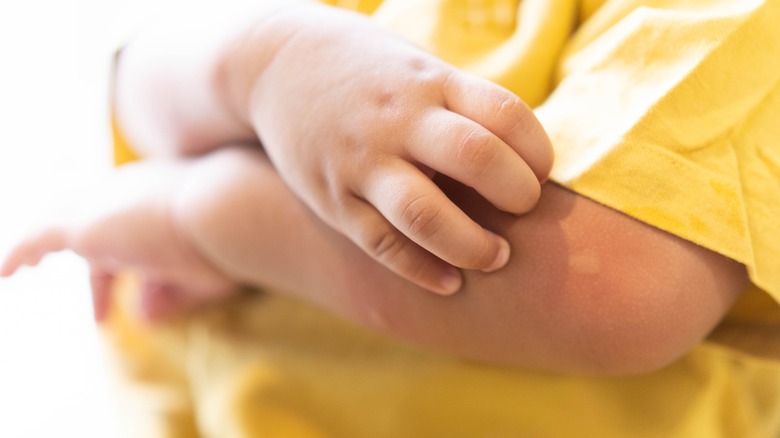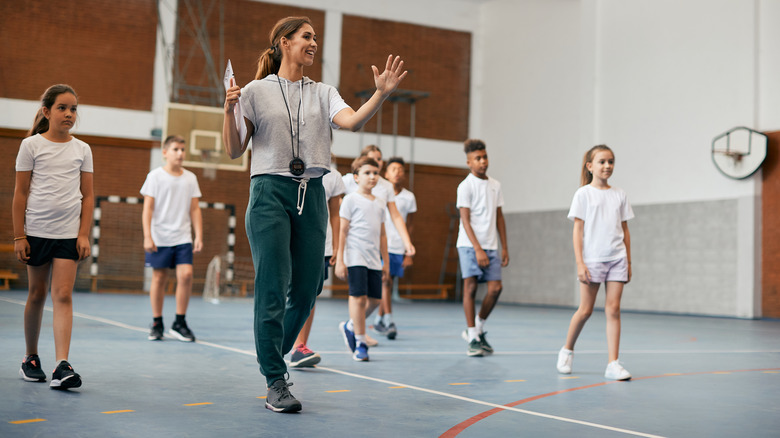While Kids' Risk For Monkeypox Is Low, CDC Offers Guidance For Schools And Daycare
The current risk of kids contracting monkeypox in the U.S. is relatively low. Among the more than 16,000 confirmed monkeypox cases, only a small number of cases have occurred in school-aged children. With classrooms preparing to reopen in the fall, however, the Centers for Disease Control and Prevention (CDC) has issued new guidance to help K-12 schools and daycare centers curb the spread of the virus (via People). Although the CDC says that there is no need to take any extra preventative measures, it recommends that schools and daycares rely on their "everyday operational guidance" to watch out for any signs and symptoms of monkeypox infections to help reduce the risk of an outbreak.
According to the guidance, this includes "children, staff, and volunteers staying home when sick, ensuring access to adequate hand washing supplies, including soap and water, maintaining routine cleaning and disinfection practices, identifying private spaces for assessment of an ill child away from others, and providing personal protective equipment (PPE) for staff who care for students with infectious diseases." In the event that a child comes down with monkeypox, the CDC advises school administrators to notify all staff, parents, and the local health department. Staff and children who have been exposed to someone infected with monkeypox are only required to stay home if they start showing symptoms of the virus.
Symptoms and risk factors of monkeypox in children
According to Healthline, a rash is one of the most common symptoms of monkeypox, along with fever, chills, headache, and muscle aches. While children have similar monkeypox symptoms as adults, a rash can be caused by a whole host of other conditions that tend to be much more common in children, like chickenpox, measles, and allergic skin reactions. "If your child has a rash, don't panic," Dr. Amanda D. Castel, a professor in the department of epidemiology at George Washington University, told Healthline. "It could be something else."
Although children's risk of monkeypox is pretty low, some kids are at a higher risk of contracting the virus than others — including those who are immunocompromised or have a chronic skin condition, like eczema. In addition, some activities may increase the risk of monkeypox in children. Since monkeypox is spread through skin-to-skin contact, certain sports and activities that involve prolonged skin-to-skin contact can put kids at a higher risk of contracting the disease. Dr. Dean Blumberg, a professor in the division of pediatric infectious diseases at UC Davis Health, tells Healthline that other than that, however, the risk remains low. "There are very few children who are going to have prolonged skin-to-skin contact with other students or staff at school during normal school activities," Dr. Blumberg told the publication.


